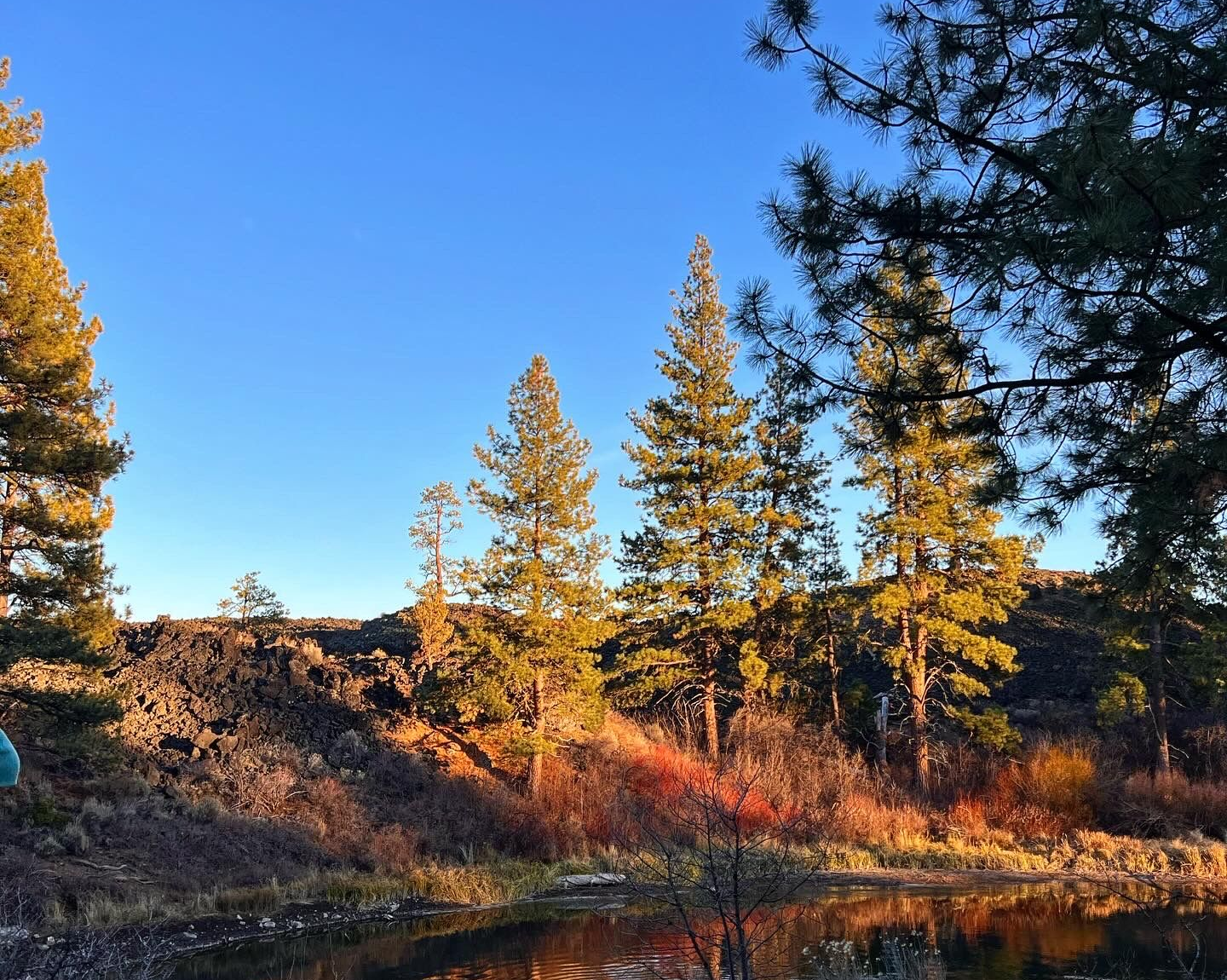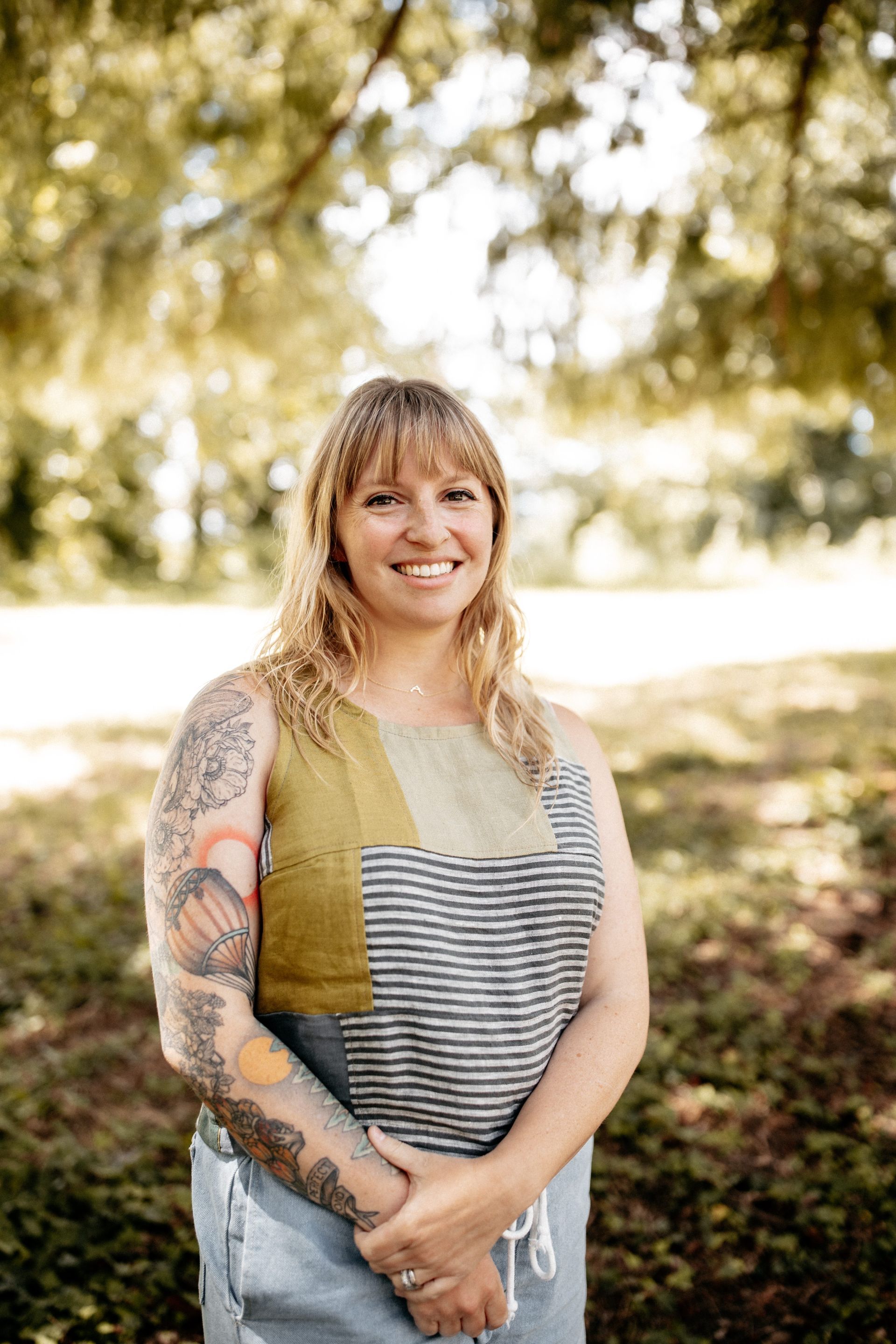Advent Through Stained Glass
Dec 11
/
Heather Mayer

Listen to the audio version here:
In this second week of Advent, I am fully aware of the lens through which I see all things. I am a preschool teacher, and I base my pedagogy loosely on the Waldorf tradition, an educational philosophy with an emphasis on nature and festivals. There is a verse told for each week of Advent that links the natural world to the focus of the heart. This week's goes, "The second light of Advent is the light of plants – plants that reach up to the sun and in the breezes dance." At least half of our preschool day is taught outside, so the seasons, the weather, and the living things around me are always on my mind and informing my viewpoint. Just as I don't know a spiritual life apart from my life lived so thoroughly outdoors, I don't know an Advent that does not incorporate the physical state of the world through my window.
I met outdoors with a spiritual direction client this morning. We walked bundled against the chill and remarked a few times that the sky was tossing the occasional snowflake our way. The oak trees were bare, and the birdsong was sparse compared to our time in those same woods just two months ago. As she processed her faith wrestling and ponderings in this season, she began to talk about the Palestinian/Israeli conflict and the uptick in attacks that are justifying terminology like genocide and war. She told me how she has been overwhelmed and heartbroken at the imagery and lost in the tension of what to do. In her opinion, so many proposed actions fall flat when the only thing needed is peace, which isn't something the average citizen countries away can provide. When she brought her lament to her church group last week, stating how unfair it feels to sing worship songs about peace when there are thousands of people in Palestine who have none, she was met with blank faces. "But anyone can choose peace!" one woman insisted after some silence, a statement that my directee admitted caused her a great deal of anger and grief. These fellow parishioners, it seemed, had not considered that peace could be an internal state, yes, but that without physical safety, political stability, food, water, and the promise that our family members will not be bombed, peace is extremely hard to come by. Her lens of global community, of God's people extending beyond borders or even religious tradition, cannot be separated from her faith. Her concept of a personal God has been expanded by the breadth of her awareness and her devotion to imagining how Christ can continue to inform the way we live.
So what can we do when we awaken to a new way of seeing the world and discover that our spirituality has to shift as a result? Does it not feel inevitable? Forgive me for more preschool teacher imagery here, but no better verbiage for these growing pains in our faith fits quite like the repeated phrase in the Michael Rosen book "We're Going on a Bear Hunt." As the family struts out on their bear hunt, they meet a number of different obstacles like a swirling snowstorm and a rushing river, and at each, they pronounce, "We can't go over it. We can't go under it. Oh no! We have to go through it!". If we are to press with integrity over each new terrain, then we have to go through it. When we butt up against something that chafes against beliefs that used to work, then we have to go through it. Avoidance and dissociation are tempting tools in seasons where we want faith to feel good. And if you are weary for the days where faith felt light and good, I see you. But what if we shift the "have to" to "get to"? What if we get to marry our soul to each season and explore how faith feels in the changes? What if we get to sit with palms open towards God with heartache and fury over genocide in one, and the inconceivable love of Christ in the other? We get to rejoice with a thrill of hope that our lens is a culmination of every hard and good thing we have lived through thus far- a stained glass window that shines a different color depending on which angle you look through.
While I watch brown fathers weep, men who are so akin to my image of Jesus, and I see tenderness and resolve pour through them as they hold the lifeless bodies of their babies, I confess I don't know how to marry that to Advent. Except to remember that hope floats invisibly in some seasons. And maybe my job is to grab hold of it when my Palestinian, and Congolese, and Ukrainian siblings cannot. The light of Advent does not erase the human condition, but it sure shines persistently through its darkness.
Empty space, drag to resize

Heather Mayer
Heather is a trauma-informed Spiritual Director and a seeker of those moments that thin the veil. She holds an undergraduate degree in psychology from the University of Oregon, a Master’s in Spiritual Formation from George Fox Seminary, and is a certified Spiritual Director through Portland Seminary. In the vein of “everything is spiritual”, Heather is also a preschool director and teacher. Her approach to early childhood is the same approach she takes in spiritual direction- that all persons carry the image and the wisdom of God within and that our intimacy with God can grow when we are encouraged to approach spirituality with curiosity and wonder.
Heather is a trauma-informed Spiritual Director and a seeker of those moments that thin the veil. She holds an undergraduate degree in psychology from the University of Oregon, a Master’s in Spiritual Formation from George Fox Seminary, and is a certified Spiritual Director through Portland Seminary. In the vein of “everything is spiritual”, Heather is also a preschool director and teacher. Her approach to early childhood is the same approach she takes in spiritual direction- that all persons carry the image and the wisdom of God within and that our intimacy with God can grow when we are encouraged to approach spirituality with curiosity and wonder.
Heather finds her deepest connection with Creator God in nature and in the presence of children and animals. Her call to spiritual direction lives in her desire for all God’s children to know and trust in their belovedness. In spiritual direction sessions, she delights in helping people learn to trust the voice of God within that says we never have to betray who we are in order to be loved and cherished by God.
When she is not teaching or directing, you can find Heather writing for Cascade Portland’s church newsletter, playing with her two kids, hiking with her dogs, or going on concert dates with her husband. She is a fan of trying as many new restaurants as possible, trips to the coast, long Sunday outdoor runs, and a good book.
Connect with Heather by emailing her at heather.michelle.mayer@gmail.com.

